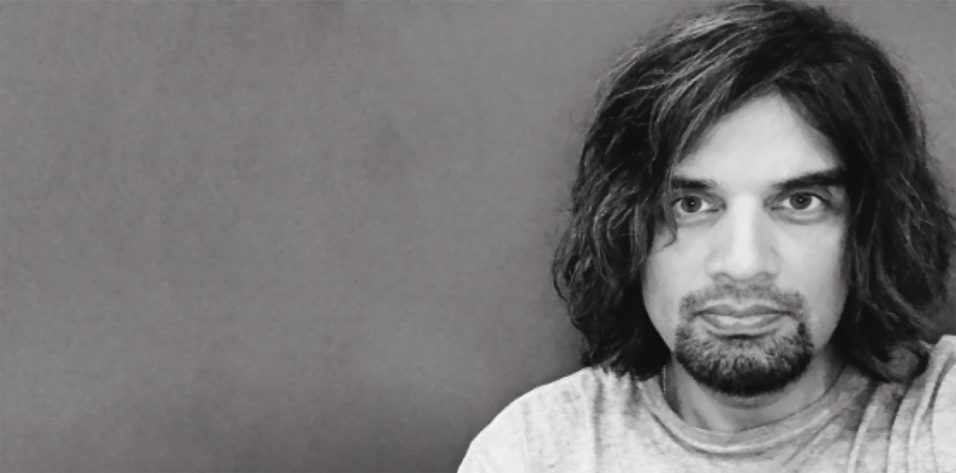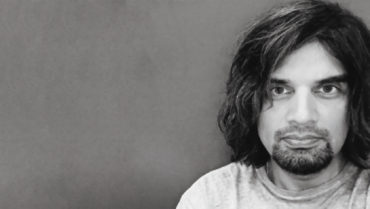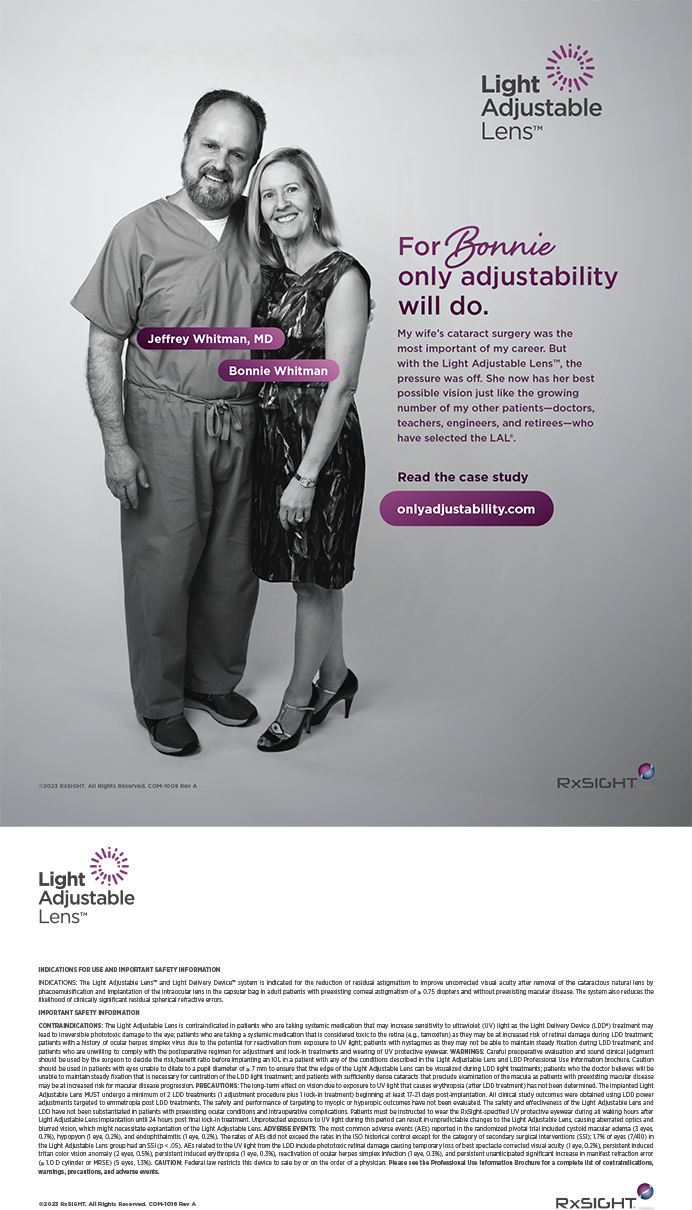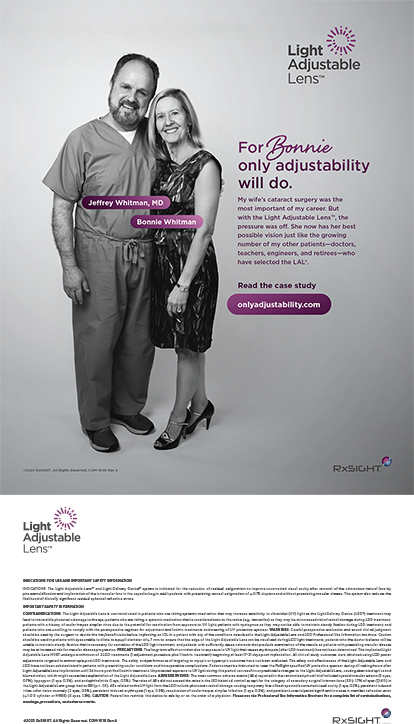Dr. Ahmed is well known as an innovator in anterior segment surgery, particularly in the area of microinvasive glaucoma surgery (MIGS)—a term that he coined—and he has contributed to the development of numerous devices for cataract and glaucoma surgery. In this interview, Dr. Ahmed talks about the advantages of looking from the outside in, finding the courage to challenge the system, and the importance of developing a mindset that is open to innovation.
Interviewed by Laura Straub, CRST/CRST Europe Editor-in-Chief
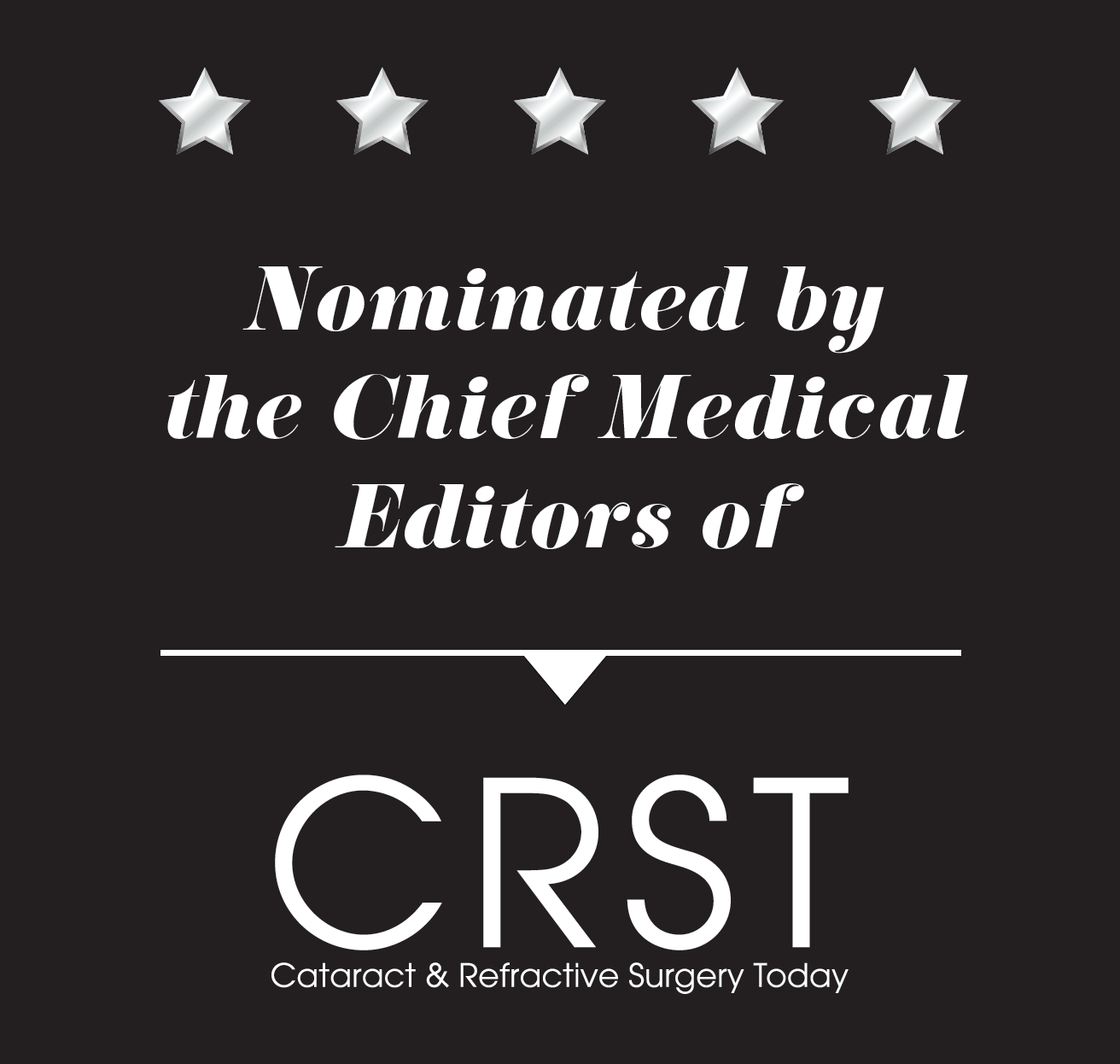
BMC: Who or what drew you to ophthalmology?
Iqbal Ike K. Ahmed, MD, FRCSC: I always wanted to a be a surgeon, even before medical school. My career was heading toward trauma or orthopedic surgery, but I happened to apply for a scholarship with Steve A. Arshinoff, MD, FRCSC, and he was my first glimpse into ophthalmology. He convinced me to look at ophthalmology seriously, instead of going into orthopedic surgery. Once I did that, I fell in love with the technical side of ophthalmology—the fine art of microsurgery. I thought, “Wow, this is like taking surgery to the next level."
BMC: Early in your career, who else were your big influences?
Ahmed: My dad is a physician, so I grew up in a household where medicine was part of the family. I think that drew me toward the field. I would also say, being a brown immigrant kid, medicine was one of those noble professions that parents always tried to push their kids toward. That’s probably why you see a lot of brown doctors these days. That may also have been part of my upbringing, valuing medicine in general.
BMC: What kind of physician is your father?
Ahmed: He’s a psychiatrist, which is a very different area of medicine. But I think he was also always interested in ophthalmology. I remember him talking about it when I was a kid.
BMC: You mentioned being an immigrant kid and seeing medicine as a noble profession. I have also read that you saw yourself as different in some ways, growing up. How has that influenced your creativity and your ability to innovate?
Ahmed: That was a really strong influence, being in what I would consider a foreign environment. I was born and raised in Northern Canada, having a name and appearance different from others around me. To me, it was obvious—even if some people didn’t highlight the difference, in that environment, unfortunately, you see some discrimination. The way people look at you and treat you was always in the back of my mind.
I hated that awareness of being different as a kid—you know, the teacher and your classmates couldn’t pronounce your name. No one, whether intentionally or unintentionally, wants to be in a situation where they’re worried about being different.
At first I resented it, and then as I got older, I turned it into an ability to look at things differently. Where everyone else might be part of a peer group and do things together, I was often not part of that group. I played hockey on the neighborhood teams, but I was the last guy who got picked. Maybe it was because of skill, but I think it was also just because I was different.
By looking from the outside in, I saw things others didn’t see. You could say they were blinded by or immersed in their own environment, but I saw things differently. It was a gift in some ways because I always had to be thinking differently, to find my own way to do things, because I didn’t have the usual common bond.
In my college years, I was a bit of a rebel. I had a chip on my shoulder, very vocally antiestablishment, anti the man. I identified with those who were disenfranchised, those with social challenges, whether because of race, religion, sexual orientation, social status, financial status. I was able to channel that into saying: “How are we going to pull things up? How can we look at something and radically change the way of thinking about it? How do we do things that we didn’t think we could because they challenge the norm?”
I’ve had some success in my life, and I am grateful for that, but even now I still feel like an outsider. I still feel like someone who’s antiestablishment and who looks at things differently. You see something, but I see something else, whether in medicine, or in life.
I think all of that made me think radically differently, including when it came to medicine and ophthalmology.
I was also lucky that I wasn’t part of a big institution, where you might have to conform to fit in. In the Greater Toronto area, at Trillium Health Partners where I started working, I felt a part of the community, and I had more openness to try things. So I have challenged a few things, and I hope these challenges have been respectful. I always felt that it’s okay to challenge things, but if you’re disrespectful to your fellow human beings you defeat the purpose of trying to improve things.
BMC: What do you consider to be your greatest professional achievement so far?
Ahmed: I would hope that my greatest achievement has been giving my colleagues the courage to challenge the system. In medicine in general, and certainly in ophthalmology, there’s a feeling of reserve when it comes to challenging norms. When I do things that challenge the norms, hopefully in a respectful way, and people see what I do, I hope it gives them the impetus to say, “Hey, I can be who I am and be successful at it, and I don’t have to feel as though I must be a conformer.”
There are obviously many individual accomplishments that people talk to me about. Two things, one would be glaucoma surgery and MIGS. The second would be tackling the most complicated surgeries I could find. But on a more global level, it would be the mindset I mentioned.
I see myself as advocating for change, for letting voices be heard, no matter who they are, and for having an open dialogue. That’s what I try to teach residents and medical students. I feel that our education system is too tilted toward rote memory and following standard mindless protocols. It doesn’t encourage people to think critically and analytically. Analytical and lateral thinking are lacking because people have not been brought up to think that way. They’re brought up to answer a quiz or an exam, list a bunch of differentials, and list steps 1 to 10 on how to do something. That’s a good way to start, but it doesn’t stop there.
I’m the opposite. I don’t follow instruction very well, I don’t follow rules, and I challenge every step. I think analytically and laterally around different issues, and part of the reason is because of the way I was brought up. So I feel a responsibility to push for that kind of mentality, to allow us to innovate and change the way we do things to help our patients. That’s what drives me and what is important to me.
BMC: What other changes are needed in ophthalmology right now?
Ahmed: Medicine is changing rapidly. Of course we need to think about how to treat disease better, but also, how do we adapt to our changing environment? We need to be mobile, literally and figuratively, and active beyond the traditional hallways of medicine.
Information technology is one of those areas. It’s imperative that we challenge the way we typically look at things, and information technology, artificial intelligence, and deep learning will be part of that. Those technologies are already changing the way that we practice medicine. That will be an important task for the next generation, to keep up with how our system is changing due to the collision of technology with everything we do in life, including medicine.
And that also applies to the way that the practice of medicine and the scope of medicine are changing. The role of government and regulatory systems are evolving. It is important for us to be able to look at challenges as opportunities and try to find solutions that lead to the betterment of humankind. That means adapting to different cultural environments, whether it’s the way the government runs, the way we teach and learn, the way we do research, or, again, the way technology is merging with health care.
So that’s more of a systems-based challenge, looking at problems at a macro level, rather than microscopically. We have unmet needs in glaucoma: medication problems, compliance, adherence, disease progression, surgical risk. How do we move forward? One way is by embracing what I call interventional glaucoma, looking at things actively rather than passively. That is an ongoing cultural change in glaucoma, brought on by the availability of multiple devices for MIGS.
I may have assisted in moving that change forward by helping to develop MIGS, but on a higher level, it involves changing the cultural mindset of how we look at glaucoma. And that’s challenging because many people have a traditional way of looking at it, a very medication-heavy view. And yet, we’re changing that. Technology has helped us to do that, but changing that cultural mindset requires what we were talking about earlier—bucking the system, challenging the way we look at things, and thinking about things from a more systems-based approach, rather than microscopically. Having the technology gives us the ability to do those things that change the paradigms. I love changing paradigms. We’re in the midst of a shift to interventional glaucoma, and I hope it will help change the course of the disease. I hope it will help take glaucoma from being one of the leading causes of blindness and drop it down on the list.
BMC: What keeps you motivated professionally? Is it these things you’ve already described, or do you have other motivators?
Ahmed: For me, it’s internal motivators. To inspire and be inspired. It’s the drive to discover and to always want more. Asking the right questions, trying to answer them, and learning from our failures. I always want to answer questions and, furthermore, to be the first one to do it. Again, critically looking at ourselves and taking it apart. I use the term blowing things up. I like blowing things up.
The process of discovery is amazing. We talked about deep learning, machine learning, and, on a human level, deep learning is accessing our deep thoughts—our deep level of thinking, in our minds, our bodies, and our souls to address some of our clinical challenges.
BMC: Do you have different motivators in your personal life?
Ahmed: Personal life is different. It’s funny how we have certain ways professionally and in person we’re different. I wear different hats in some ways and have different perspectives. I like to be home. I like to be steady and to have the expected in my personal life. Professionally, every day is a surprise. I like those surprises because I like to take them and figure them out.
My family is my personal life. I need that and want that to be steady, solid, and strong, as opposed to constantly changing and evolving. If I applied my professional philosophy, always changing, blowing things up, it would not do well for my family life. I think I’m traditional in that way, when it comes to my family and my faith. My faith is important to me. It’s 2,000 years old, but I can still use that spirituality to stay strong and healthy in mind and soul. Even though that’s old technology, so to speak.
Personally, I’m a pretty private person. I’m much more reserved and don’t share all my personal details with everybody. Professionally, I blurt everything out in public and speak out of turn in meetings!
BMC: Have you found a good work-life balance, and, if so, can you share some of your success in achieving it?
Ahmed: The word balance is not in my vocabulary; we’re constantly evolving ideas and places, and my mind is constantly changing. But I think I’ve prioritized what’s important in life. I value being home in the evenings and for the weekend whenever I can. I travel a lot. But I literally will be in Hong Kong for 1 day or in the Middle East for 2 days and then come back home. I think that priority, being here for my family, is an extremely high priority for me.
Being organized is important, and having great people around me who keep me organized is a big secret to my success. I would be not nearly as close to balancing my life and my work without the help of Daisy, my long-time assistant.
My wife—you know what? I got lucky. I have an amazing wife who understands me, who basically is the CEO of my family. She is an awesome wife and mother, and she is the glue that keeps my personal and family story stable. That allows me to be more open-minded about everything else I do and to be able to challenge things professionally.
I am very blessed, honestly. I have parents who are supportive, I found the right person to be with for the rest of my life, and I have great kids, great in-laws, great assistants, and great people to work with. I really, genuinely love these people. The people you’re with are more important than what you’re doing or where you go. Doing things as a team, as a group, the successes we have as a group, as a family, is the ultimate satisfaction.
I definitely am far from perfect, and I have a lot of things I need to improve on in all aspects of life. I never feel like I’m the best surgeon, the best dad, the best husband, the best brother, the best son, the best neighbor—I am far from it. That also drives me to try to pay attention to those things as best I can. I don’t give a magical solution to work-life balance, but I think that it’s helped to keep me afloat.
I did want to mention one thing, and that’s a little three-letter word: ego. Ego gets in the way of so many successes in life, in terms of relationships and people. I try my best to check my ego at the door, maintain humility, and realize that I don’t know everything, that I have shortcomings, and that people around me, no matter who they are, have many great ideas. Whether it’s a student or someone who’s about to retire, I look at each person I interact with and say, “Wow, they’re a font of knowledge. They know more about certain things than I do, and I’m going to learn from them.” And I genuinely feel that. That sends me back to my childhood because I couldn’t develop an ego being the black sheep in class. It’s hard to have an ego when you’re the outsider.
But I’m happy being on the outside. I feel sorry for people who are on the inside!
BMC: What are some passions you have outside of the office?
Ahmed: Honestly, my hobby is my family. Any free time I have is spent doing things with them. After this conversation, I’m going to pick up my 4-year-old from school because that’s what I want to do. Outside of medicine, my waking hours are spent with my family.
Working out is one thing I do on my own. I follow some sports as well, NFL and NHL, because I played hockey and football growing up. My boys are bigger now, so I can play sports with them, which is fun. But otherwise, it’s work—which I totally love and never feel it’s work, it’s all play.
BMC: If you had to nominate one creative mind in ophthalmology, whom would it be and why?
Ahmed: There are too many to pick from! I truly think every single mind in ophthalmology has the potential to be creative, and all it takes is for us to have the courage and conviction to tap into that. So I nominate all my peers, colleagues, and friends in ophthalmology.

